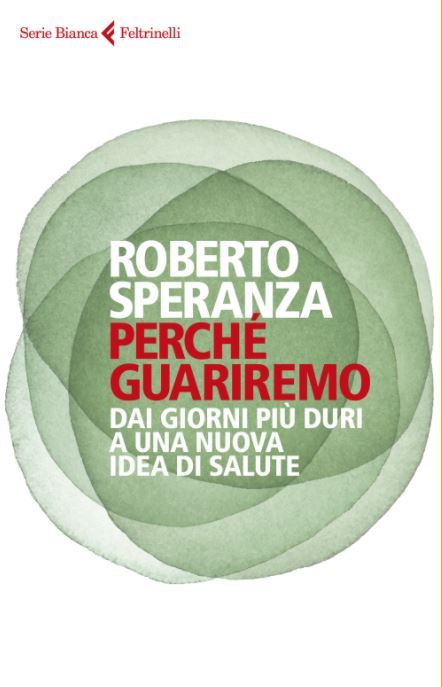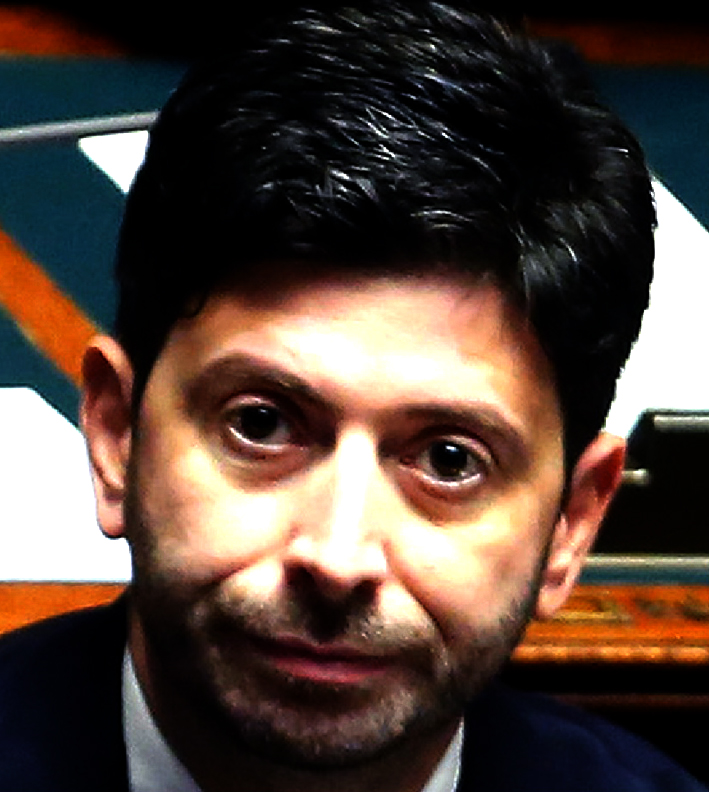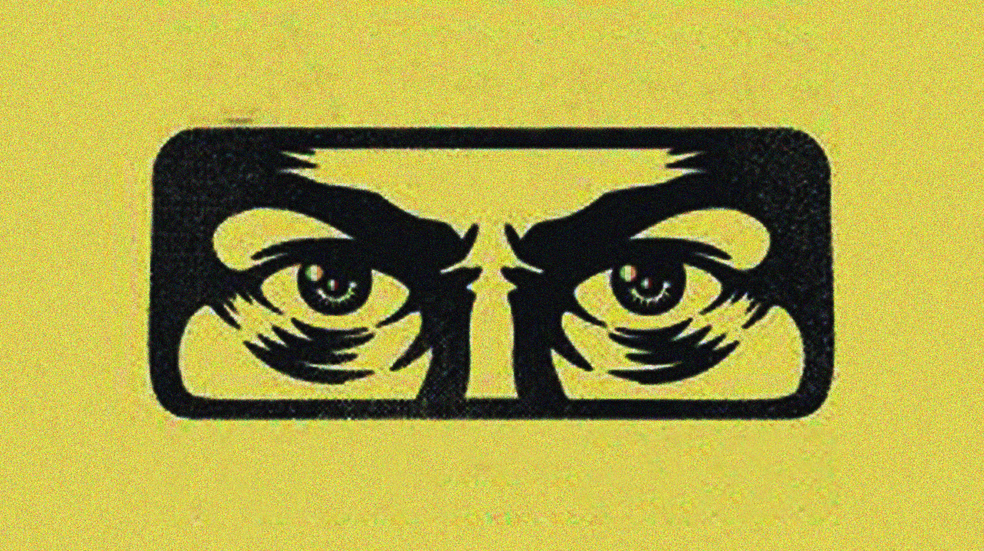Socrates described death taking his feet first, while he still played the flute. The death of democracy is like this, it first takes the peripheries and the small things, and then goes straight to the heart.
It happens that in Italy the Minister of Health Roberto Speranza wrote a book on the pandemic during the pandemic’s first wave, and published it in the first days of October 2020, with one of the major Italian publishing houses founded by Gian Giacomo Feltrinelli and today directed by his son Carlo Feltrinelli, author of a beautiful biographical book about his father.
The minister’s book is titled Why We Will Heal, and just a few days after publication, the book was withdrawn from the market. I was able to consult the book extensively in my trusted bookstore, practically reading it all, but when I returned to buy it two days later, my bookseller told me what I knew was happening, that it had been withdrawn. The difference between knowing and experiencing this was quite traumatizing
I do not want to enter into the merits of the content of the book, which would be useless as the public has been deprived of the right to judge it; I want to meditate on this act of subtraction, control of the Past and rewriting of the Present.

the minister’s book withdrawn from bookstores
This event of a book by a Minister in office, published and withdrawn from the market a week later, seems to me a thing of enormous gravity, and this thought is shared by important people of the culture who for institutional reasons certainly do not wish to antagonize the cabinet, but questioned by me they expressed their discomfort and dissatisfaction, thanking me for taking on the burden of this complaint. It is a gesture that refers me to governmental techniques, to use a concept by Michel Foucault, that can be considered appropriate for governments such as China, Iran, or Erdogan’s Turkey.
Withdrawing a book from the market is obviously an authorial right, recognized by an Italian law of 1941 (therefore enacted under the fascist government) but modified with various updates, the last of which dates from 2019. The law is law 633 of April 21, 1941 and section V is about the withdrawal of a published work from commerce. there are two articles dealing with this case, 142 and 143.
This law allows this serious act upon communication by the withdrawing party to the publisher and the Ministry of Culture, which must make public the reasons for the withdrawal. The interested parties, such as the publisher, can appeal to court, and if the judicial court finds serious moral reasons, the publication will be withdrawn, not before.
The legislator, however, did not imagine in forming this law that the author could be a minister in office, who is in the government with other ministers who in various capacities are holders of extremely influential powers in society and therefore also in publishing.
Just to give a concrete example, I am thinking of the redistributive power of wealth in the hands of the executive power, for example in the sector of newspapers and weeklies, where the State intervenes with aid of over 50 million euros every FY,and clearly the executive power has ample discretion. The economic aid to publishing is a not indifferent lever with which to take by the horns the bull of press freedom.
Obviously such freedom does not consist only in the freedom to publish a text, but also in the right of the public to read it after it has been given to the press by its author. Since no one put a gun to the author’s head to publish it, if he decided to publish it he must, in a society that believes in freedom of expression and of the press, take responsibility for it. It cannot be a freedom to throw stones and hide one’s hand. Certainly a normal author, without any political office as a Minister, would not have had an easy life if, once his book arrived in bookstores, he had had second thoughts and had recourse to the right to withdraw the work from the market, asking his publisher to collect the books.
The publisher, especially one as powerful as Feltrinelli, would have appealed in court and would not have withdrawn the book until a court ruling. With the Minister it did not go that way. The publisher has ordered the immediate withdrawal of the work. Obviously we, the poor public of a small dystopian nation, the birthplace of historical fascism, are not given to know the terms of this withdrawal.
I personally asked Carlo Feltrinelli to discuss this for an interview, but he quite tactfully preferred to remain silent on this topic, which is understandable. We are talking about an author who is a sitting government minister, a government that has also assumed some exceptional powers, as it has declared a state of emergency that the Italian Constitution does not provide and that in any case would like something similar to be limited to a very short period and instead it has been in force since January 31, almost a year. This means an erosion of the prerogatives of the legislative power, a constitutional twist that worries many constitutionalists like Cassese and others.

Carlo Feltrinelli in the middle , the Minister of Culture Franceschini to the righth , and I
In the face of this operation staged in Italy with the publication and withdrawal of the book by the Minister of Health in the space of just a week, I have enormous difficulty in distinguishing what happened from this passage of Orwell’s 1984 :
What happened in the unseen labyrinth to which the pneumatic tubes led, he did not know in detail, but he did know in general terms. As soon as all the corrections which happened to be necessary in any particular number of ‘The Times’ had been assembled and collated , that number would be reprinted, the original copy destroyed, and the corrected copy placed on the files in its stead. This process of continuous alteration was applied not only to newspapers, but to books, periodicals, pamphlets, posters, leaflets, films, sound-tracks, cartoons, photographs – to every kind of literature or documentation which might conceivably hold any political or ideological significance. Day by day and almost minute by minute the past was brought up to date.
Such assonance is terrifying.
So the law defends the author’s right to withdraw the literary work from the social and economic strength of the publisher, and this in exceptional cases to be certified according to a specific procedure, but it is evident that in the case of a minister the positions of power are reversed. Who defends the publisher from the power of the minister?
In a mature democracy, in an exceptional case such as this in which an author, endowed with enormous institutional power, suddenly ordered the withdrawal of his book from the market, it would certainly be public opinion through journalists to exercise a balance of power between the two subjects, imposing on the powerful author the responsibility of taking full responsibility for his actions. Perhaps in a mature democracy a minister currently in office would adopt a deontological behavior which would require him to write books either before or after his mandate.

the minister of culture Franceschini with his book published during his first term with Renzi – Gentiloni
In Italy, instead, just to give an example of the procedure, the Minister of Culture Franceschini in his previous mandate, during the Renzi and Gentiloni cabinets, spent some part of his time publishing a book that a publishing house would hardly have refused him. The newspaper reviewers would certainly have avoided offending the Minister by forgetting to pleasantly review his book. This is dystopian Italy of the 21st century, a country very favorable to the men of power in institutions. So favorable as an overly permissive mother, to corrupt them morally in spite of themselves.
The Minister of Health simply refused to give any articulate justifications to the press, displaying a contempt for public opinion that is indecent and not tolerable in an advanced democracy. We are evidently not so advanced. But this refusal could have negative consequences in the long run also for the “bare life” of the ministers themselves; if they understood this they would not walk so carefree towards the abyss.
Chased inside his home by the journalists of theLe Iene program, followed by millions of taxpaying citizens and voters, who with a copy of the book in hand asked the minister to say something, he, closing the gate on the cameras, said that he had withdrawn the book because he didn’t have time to present it in bookstores, showing offense at being disturbed by the journalist, as he said over the microphone, even outside his own house, like some kind of 17th century aristocrat.
It is a lie uttered with the exact knowledge that whoever listens to it recognizes it exactly as such. Such a lie is pronounced not with the intention of being believed, as was the original function of the lie, as Adorno explains in Minima Moralia. In our days these literally incredible lies are uttered as an act of power. They say, “I don’t care what you think.” The lie is an act of power, and an act of contempt.

Minister Speranza, photo taken from Youtube
And what does this contempt despise? The citizen, popular sovereignty, that electorate that bestows upon and entrusts power to the representatives in the institutions. When this form of contempt reaches the citizen from the liberal and progressive spheres of politics, then the plow of populism and even of fascism sinks and uproots the land of democracy to make the weeds sprout.
The relationship between power and citizenship in Italy has not moved much from the portrait made of it by the novelist Ignazio Silone, in his portrait of highly refined notables in circumventing peasants begging favors instead of asserting rights. Things have changed, not people. A very serious functional illiteracy puts us, the land of Dante, Petrarch and Boccaccio, in the last place in Europe. and this tragic illiteracy corrupts power by not stemming it.
The Minister of Health, in a health emergency such as the one we are experiencing, has enormous powers. In a mature and evolved democracy this also means enormous responsibilities.
This minister determines a series of political decisions that affect the bare life of citizens, of individuals. We are on the verge of that biopolitical power circumscribed by the reflections of Michele Foucault. A mature and advanced democracy would advance with extreme caution in these territories.
All people with a minimal understanding of institutional political culture recognize that the decision of a health minister to write a book about the pandemic and publish it in the middle of that pandemic is a political act of absolute importance. As soon as the book has entered the public sphere, the author must be responsible for his ideas.
The minister is a representative official and must answer to the sovereignty of the people, which through a series of means has the right to form an opinion to decide how to delegate the power of which it is the only holder.
Evidently the minister had written a book with the purpose of manipulating the citizen’s ability to form the right opinion through which to entrust power to his representatives. Given the absence of certain conditions that disappeared with the second wave of the pandemic, that found the national health system completely unprepared, while the minister, salaried by the taxpayers, had spent the summer writing this book which would function as an autopropaganda message, thanks to the drastic drop in infections this summer, he rushing urgently to repair the damage to his image by withdrawing the book that was now out of date. Can a country trust such a person? By my standards absolutely not.
To have withdrawn this book is tantamount to a form of serious political fraud against the sovereign people.
Either the Italian people have a health minister, entrusted with the government of public and private health, who is so confused as to publish a book and have it withdrawn from the market within a week, or the Italian people have a health minister who is an extremely dishonest person. The two options are both terrible given the power over public and private health he represents as long as he is in office.
It means we have an irresponsible person in this ministry on whom life or death depends these days. How can a man who refuses to take responsibility for what he wrote in a book bear the responsibility of public health?
Is it possible, being the minister of health of the eighth-biggest world economy, to write a book on an ongoing pandemic without weighing every single word before putting it in the hands of a publisher? Obviously this would be absolutely mandatory in a mature democracy. But in 21st century dystopian Italy, everything is possible, you just need the power to change the past. How can the voter and taxpayer not fear that a member of the executive power so inexperienced or unfair, we do not know which, is not completely incapable of protecting the common good, if not actually constituting a danger?
This country is so absurd, turned upside down, as if it were a bizarre spatio-temporal anomaly, that the press that has tepidly dealt with this editorial disappearance, with the slightest semblance of scandal, is a populist and right-wing press, while for the large media circuit with a liberal progressive orientation, all this did not represent the slightest problem. The publication of the book is simply postponed, they said, closing the issue.
I contacted both the Ministry of Culture and of Health by telephone, and I talked to people who, working from their homes, candidly confessed to me their ignorance in legislative matters on the question of the withdrawal from the market of a published work.
I called the Ministry of Culture to obtain the published reason for the decision to withdraw the work that the author is required to communicate to the ministry, and which by law is a public document, but obviously the author was himself a minister. It won’t be easy.
After all, I think, David Barstow of the NYT took years to obtain the documents from the Pentagon which earned him a Pulitzer Prize in 2008. This comforts me.
And I called the Ministry of Health telling them that I was preparing a piece on this gesture of the withdrawal of the book that I considered to be of enormous gravity. Perhaps the minister, through a delegate, had something to say? Irritated and bored voices.
I also sent an email requesting this document, not so much in the hope of an answer, to the two Ministries, to the Prime Minister’s Press Office, to the Ministry of Justice (General Attorney), to the national association of Journalists, , and to the Procura della Repubblica (prosecuting authority) . Obviously I sent the email with the scientific awareness of the uselessness of my request in a country, Italy, of which the anti-mafia magistrate Ilda Boccassini said that it is a country where corruption is endemic and systemic, and so something anthropological.
Despite the “read” notifications telling me that my two emails had been read by the Press Office of the Ministry of Culture, I have not received any response. If I write an email to the president of the United States, as when I supported Obama in the 2009 elections from Italy, I always receive a reply; no matter if it is given by a machine, it matters that it is not permissible to leave a citizen without a certified answer in his hands. In Italy, power either enters your home and especially your bank account, or it is a ghost in the institutions where it should live. Then characters like Salvini arrive, they rub their fat naked bellies and are adored like idols.
So, with painstaking patience in a language that is not mine, because my language no longer has the power to express freedom and dignity in my country, I write this article for an Anglo-Saxon public, whose democratic tradition is still alive, if endangered, expressing my desperation to live and think between the most ignorant bourgeoisie in Europe and the most illiterate people, as Pasolini immortalized it 50 years ago.
A country where, among a people increasingly downgraded to plebs, a class of servile semi-intellectuals scratch around, entrusted with the cultural management of the system, similar to farmed chickens in a chicken coop, in the pay of a cartel of two or three owners of the means of cultural production, which is what my mentor Aldo Rosselli, son of one of the two Rosselli brothers, thought.
In Italy, almost 40,000 citizens have died during this pandemic, and thousands have been cremated without autopsies. Many of these people died not from the virus but from bacterial superinfections due to dirty intubations. Because when the pandemic broke out in Italy, it was impossible for the heroic doctors and assistants of the national health system, with only 5,000 intensive care beds for 60 million inhabitants, to comply with the meticulous procedures of antibacterial prophylaxis in assisted breathing.
This we can say with certainty due to the fact that in 2019 in Italy 49,000 people died of bacterial superinfection in Italian hospitals, setting the European record for hospital sepsis. Just as we are first in Europe for antiobiotic resistance, as the Director General of Prevention at the Italian Ministry of Health Giovanni Rezza explained to mein a recent conversation.
In the case of pronated and organically wasted we are talking, for example, about ruthless killers like acinectobaters baumannii and pseudomonas aeruginosa.
All these people died without receiving either the comfort of relatives or a funeral, and their bodies were disposed of in the same way that bodies were disposed of in a famous extermination industry of the past.
The story of this pandemic, I add, is not the story of a surprise (as in 1918); instead, it is a story of criminal omissions of surveillance and health prevention, perpetrated in all states of the West, since, after SARS in 2003, the WHO asked all states to adapt inadequate national health services to an impending pandemic.
In Italy, no one in the intervening years implemented the pandemic plans, and the current Prime Minister, Conte, and his ministers, were in office a full 578 days before the pandemic exploded. They never bothered to secure the country. This general criminal omission was the cause of a pandemic which was therefore not surprising. Their failure to act was not negligent, but malicious, and our European democracies, if still healthy, will have to bring those responsible, at the highest political levels, to the courts of justice.
Article 40 of the Italian criminal justice code states that whoever is legally obliged to prevent an event and yet does not prevent it, shall be judged as if he had caused it.
In all these years that governments have ignored warnings to prepare for a pandemic, over 14 trillion dollars have been wasted in the West on ordinary military spending, not counting the tens of trillions of dollars for the endless wars after 9/11, as noted in Brown University’s famous study on the cost of war. Don’t you find this a terrible criminal fraud against the life and prosperity of our societies?Best wishes
from a Roman correspondant.
PS : I wrote three letters to the ministries and spoke three times with a cordial lady from the press office of the Ministry of Culture, I never received the document I asked for
THE END
special thanks to the essayist and poet Leon Weinmann
All my pandemic inquiries here
Coronavirus – Lo stato delle cose
Coronavirus, i punti fragili nella difesa dalla contaminazione
Prove tecniche di Dittatura? Voci off di Giuristi,filosofi e cittadini sovrani
Fase 2 “permettiamo i funerali”- Potere Esecutivo in delirio
Pandemia e analfabetismo funzionale. Contagio e Cultura
Coronavirus, fase 2: ora gioca la responsabilità individuale
Reductio ad agguatum, Nadia Urbinati & Co. e il Manifesto pro Conte
Movida e Covid19: fermatela subito o avremo una seconda ondata devastante!
Il libro sparito del Ministro Speranza è censura di Stato, distopia orwelliana.
follow me on Twitter











